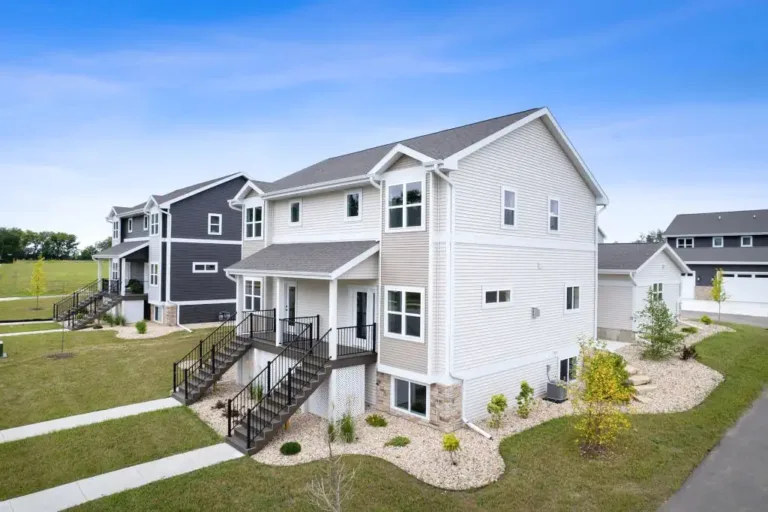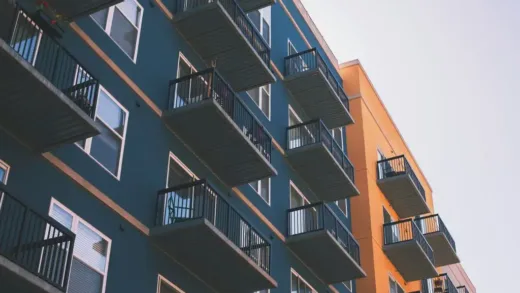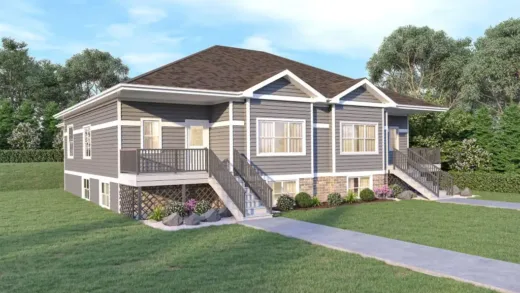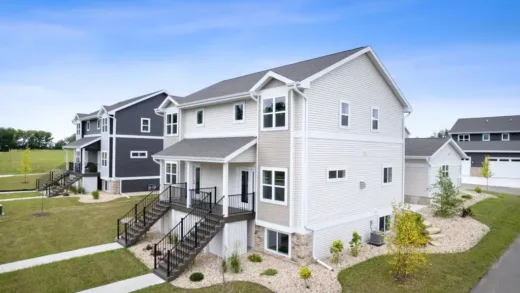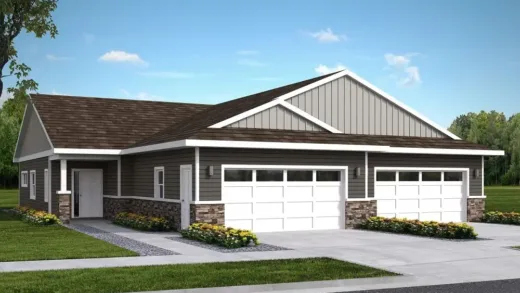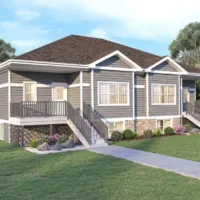Condo living and apartment living offer distinct lifestyles, financial implications, and community dynamics. Understanding the key differences between owning a condominium (condo) and renting an apartment is crucial for anyone considering a move or an investment in real estate.
This article delves into these differences, exploring lifestyle and financial considerations that potential residents should weigh before making a decision.
Contents
Key Differences Between Owning a Condo and Renting an Apartment
- Ownership vs. Renting
- Condos: When you purchase a condo, you own the unit itself and share ownership of common areas with other residents in the building. This means you can build equity over time and have more control over the modifications and personalization of your space. Ownership typically includes responsibilities such as mortgage payments, property taxes, and homeowner association (HOA) fees.
- Apartments: Renting an apartment means you pay a monthly fee to a landlord or property management company for the right to live in the unit. You do not own the space, and therefore, you do not build equity. Renters are generally restricted in terms of making significant changes to the apartment. Maintenance and repairs are usually the landlord’s responsibility.
- Financial Commitments
- Condos: The financial commitment of owning a condo includes the purchase price, closing costs, property taxes, mortgage payments, HOA fees, and potentially special assessments for major repairs or improvements to the building. The upfront costs are higher due to the down payment and closing costs, but over time, you have the opportunity to build equity, which can be a significant financial benefit.
- Apartments: Renting typically requires a security deposit and the first month’s rent upfront, making the initial financial outlay lower than purchasing a condo. Monthly rent payments are generally higher than mortgage payments for a comparable condo, but renters are not responsible for property taxes, HOA fees, or building maintenance costs. However, rent prices can increase with lease renewals, which can impact long-term financial planning.
- Maintenance and Repairs
- Condos: Condo owners are responsible for the maintenance and repair of their unit’s interior, including appliances, plumbing, and electrical systems. The HOA typically handles the upkeep of common areas and exterior maintenance. However, this can sometimes lead to unexpected costs if major repairs are needed that require special assessments.
- Apartments: Maintenance and repairs are usually the landlord’s responsibility. This can be a significant convenience for renters, as they do not have to worry about the costs or logistics of fixing issues. However, the responsiveness and quality of maintenance can vary depending on the landlord or property management company.
- Rules and Regulations
- Condos: Condos are governed by an HOA, which sets rules and regulations for the community. These can include restrictions on noise levels, pet ownership, exterior modifications, and the use of common areas. While these rules help maintain property values and community standards, they can also limit an owner’s freedom.
- Apartments: Apartments are governed by the lease agreement and the landlord’s policies. These can be equally restrictive, dictating everything from pet policies to the types of alterations that can be made to the unit. However, because renters do not have ownership stakes, they may find these rules less burdensome than condo owners.
Lifestyle Considerations
- Community and Social Environment
- Condos: Condo communities often foster a sense of belonging and camaraderie among residents. The shared ownership of common areas can create opportunities for social interactions, community events, and a collective investment in the property’s well-being. Many condo buildings offer amenities like gyms, pools, and lounges, enhancing the social aspect of living there.
- Apartments: Apartment communities vary widely in terms of social environment. Some complexes are very social with regular events and gatherings, while others are more transient with less interaction among residents. The sense of community can be less pronounced, especially in larger complexes where residents frequently move in and out.
- Flexibility and Mobility
- Condos: Buying a condo is a long-term commitment. While you can sell your unit if you decide to move, the process can be time-consuming and dependent on market conditions. Condos are best suited for individuals who plan to stay in the same location for several years.
- Apartments: Renting an apartment offers greater flexibility. Lease terms typically range from six months to a year, allowing renters to relocate with relative ease. This is ideal for individuals who expect to move frequently, whether for work, personal reasons, or simply to explore different neighborhoods.
- Personalization and Control
- Condos: As a condo owner, you have the freedom to renovate and personalize your living space, subject to HOA rules. This can significantly enhance your living experience and property value. You can change fixtures, paint walls, and even undertake major renovations, giving you full control over your home’s aesthetic and functionality.
- Apartments: Renters have limited ability to personalize their space. Most landlords restrict changes that can be made to the unit, and any modifications typically need to be approved. While some apartments may allow minor alterations, significant renovations or permanent changes are usually not permitted.
- Amenities and Services
- Condos: Many condos come with a range of amenities such as fitness centers, swimming pools, concierge services, and secure parking. These amenities are maintained by the HOA and are included in the monthly fees. The quality and variety of amenities can enhance the lifestyle of residents.
- Apartments: Apartment complexes also often offer amenities, though the range and quality can vary widely. Some high-end apartments provide similar amenities to condos, while more basic rentals may offer minimal additional services. Renters typically do not have a say in the amenities provided, which are determined by the property management.
Financial Considerations
- Long-Term Investment
- Condos: Purchasing a condo is a long-term investment. Over time, the value of the property can appreciate, allowing owners to build equity and potentially sell at a profit. Condos can also be rented out, providing a source of passive income. However, the market can fluctuate, and there are risks involved, including the potential for property value decline and unexpected repair costs.
- Apartments: Renting an apartment does not provide an opportunity for investment. Renters do not build equity and do not benefit from property appreciation. However, renting offers financial predictability in the short term, without the risks associated with property ownership.
- Monthly Expenses
- Condos: Monthly expenses for condo owners include mortgage payments, HOA fees, utilities, and property insurance. HOA fees can vary significantly depending on the amenities and services provided by the community. While these fees cover maintenance and amenities, they can also increase over time.
- Apartments: Renters pay monthly rent, which typically includes some utilities, depending on the lease agreement. Other expenses may include renter’s insurance and additional utilities not covered by the rent. Renters benefit from not having to pay for property maintenance, but they may face annual rent increases.
- Tax Benefits
- Condos: Condo owners can take advantage of several tax benefits, including deductions for mortgage interest and property taxes. These deductions can significantly reduce the overall cost of ownership. Additionally, any capital gains from the sale of the property may be excluded from taxes under certain conditions.
- Apartments: Renters do not receive the same tax benefits as homeowners. Rent payments are not tax-deductible, and renters do not benefit from deductions for property taxes or mortgage interest. This can make renting more expensive in the long run from a tax perspective.
- Market Conditions and Economic Factors
- Condos: The value of a condo can be influenced by market conditions, economic factors, and the overall health of the real estate market. In a strong market, condo values can appreciate significantly, providing a good return on investment. Conversely, in a downturn, values can decline, impacting the owner’s equity.
- Apartments: Rental prices can also be influenced by market conditions, but renters are not directly affected by property value fluctuations. Instead, renters may face changing rental rates based on demand and supply in the rental market. In some cases, rent control laws can provide stability and protection against rapid rent increases.
Conclusion
Choosing between condo living and apartment living involves careful consideration of various lifestyle and financial factors. Condos offer the advantages of ownership, including building equity and having control over the living space, but come with higher initial costs and ongoing responsibilities. Apartments provide flexibility, fewer upfront costs, and fewer maintenance concerns, but do not offer the same long-term financial benefits as owning a property.
Ultimately, the decision depends on individual preferences, financial goals, and lifestyle needs. Prospective residents should assess their long-term plans, financial situation, and desired level of commitment to make an informed choice between condo and apartment living. Whether prioritizing investment and stability or flexibility and convenience, understanding these key differences can help in making the best housing decision.
